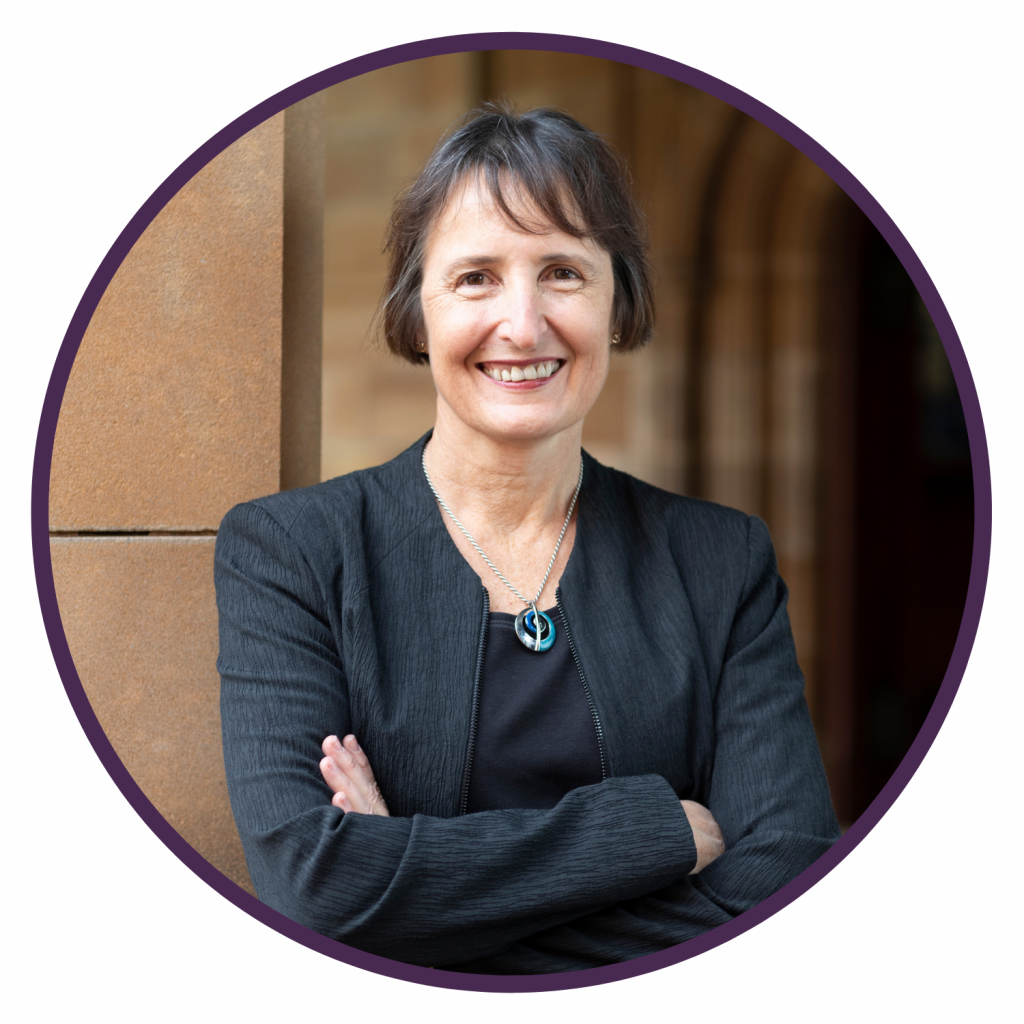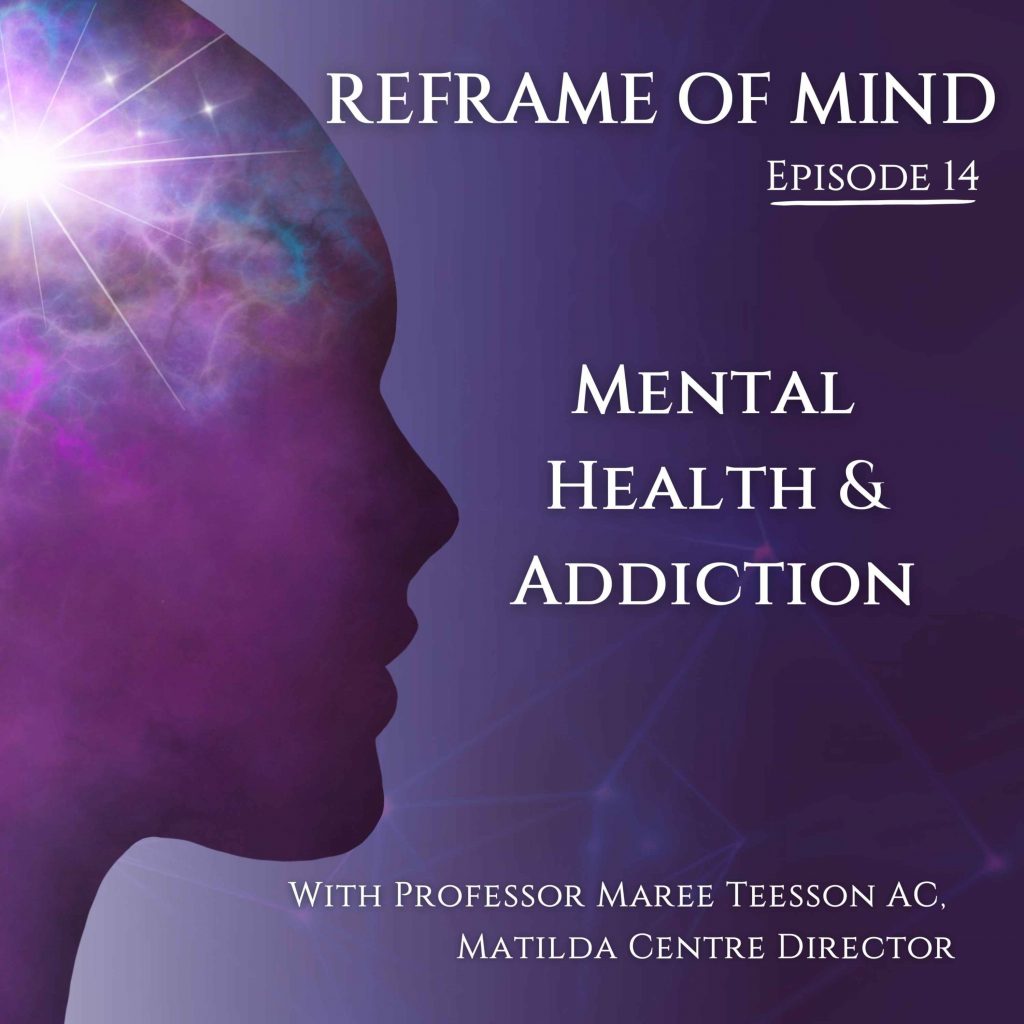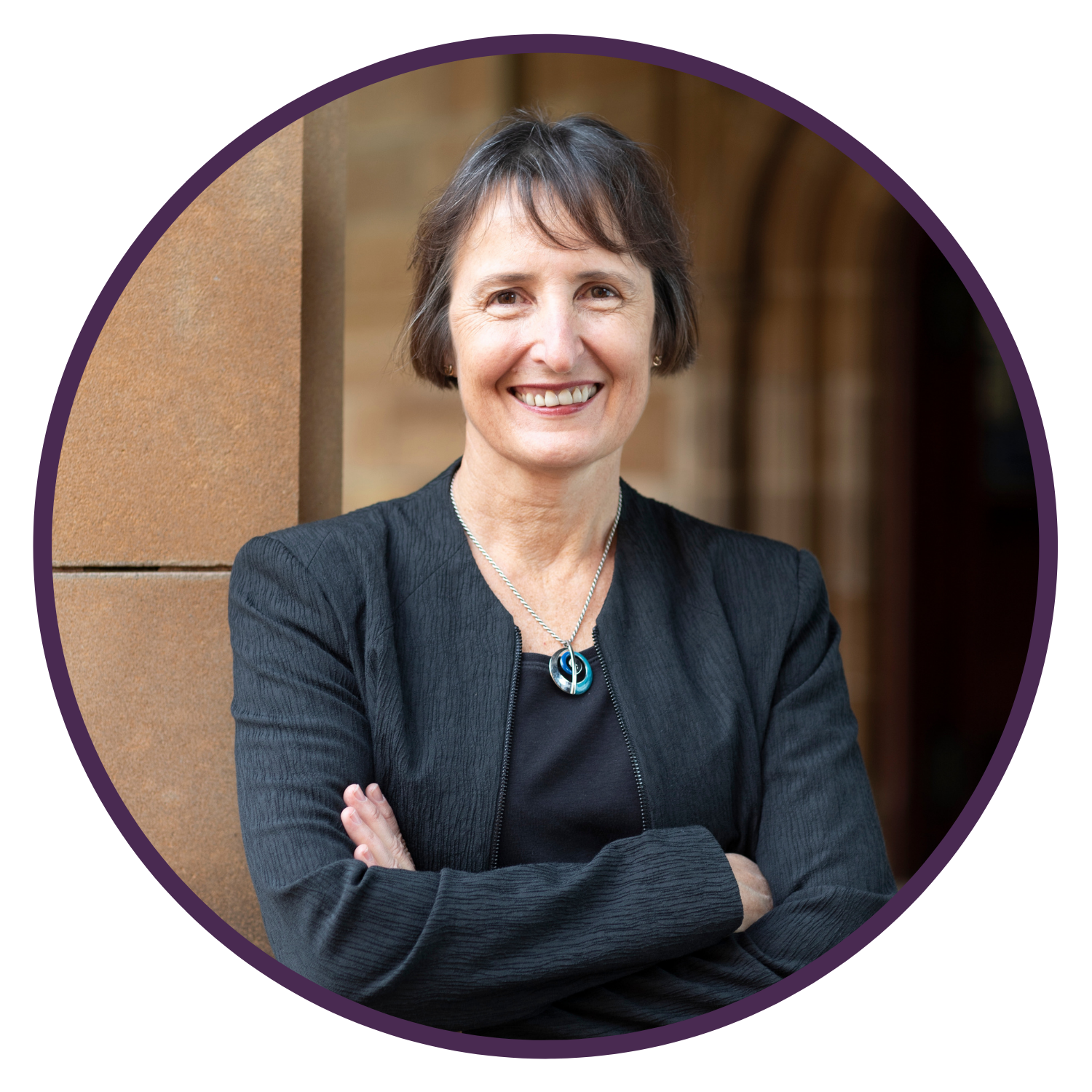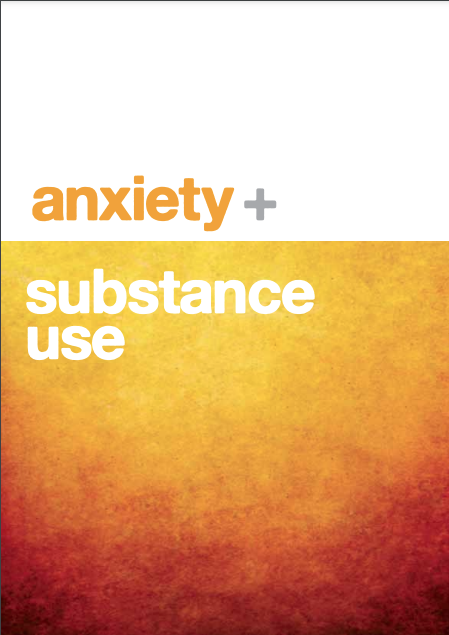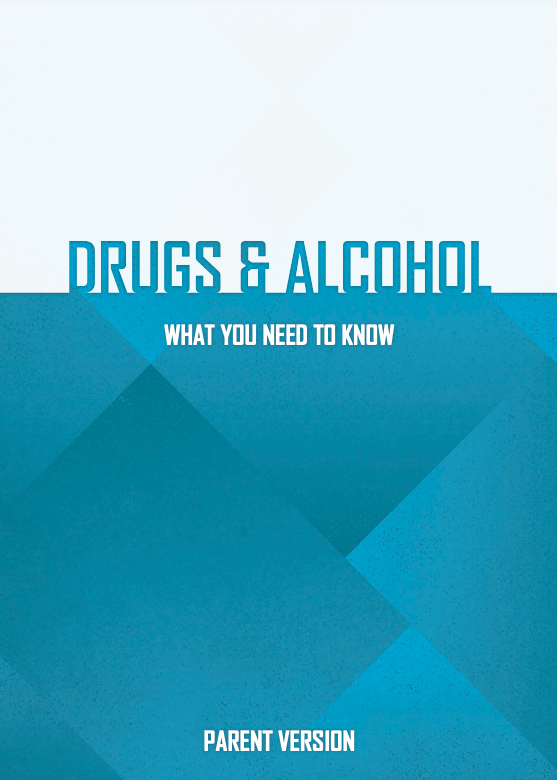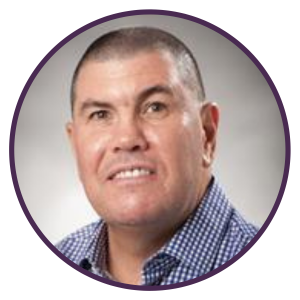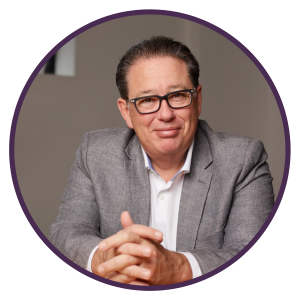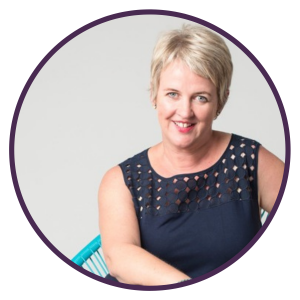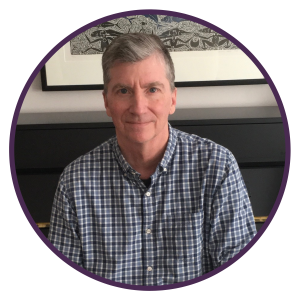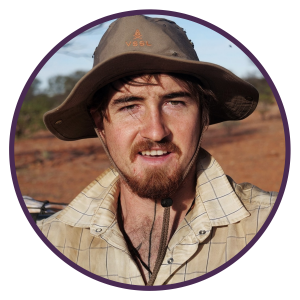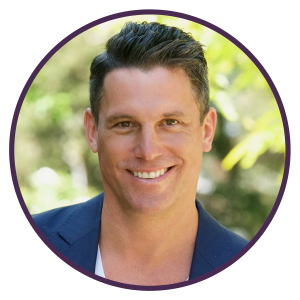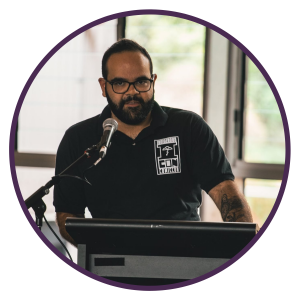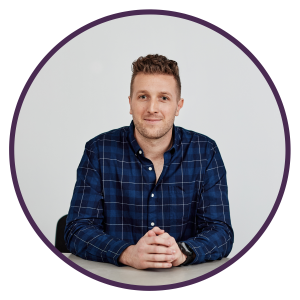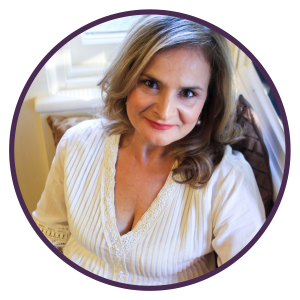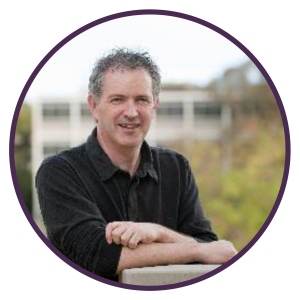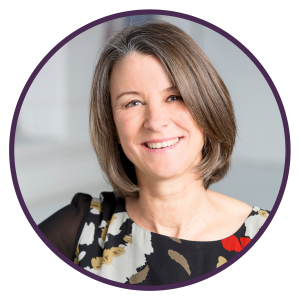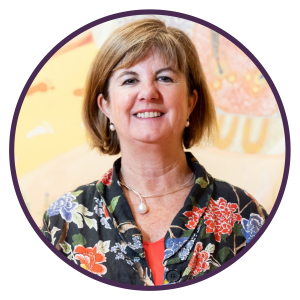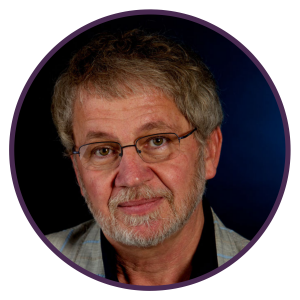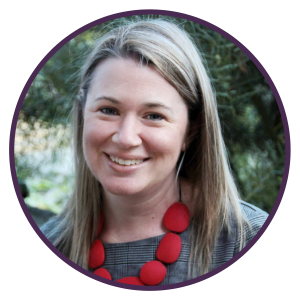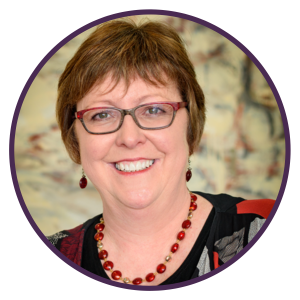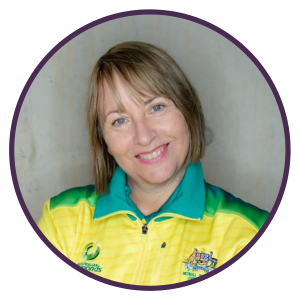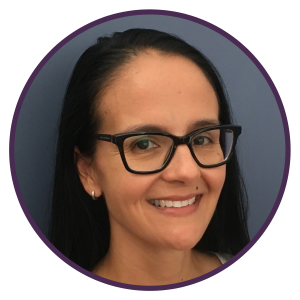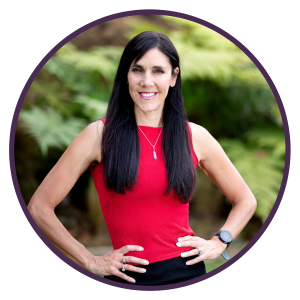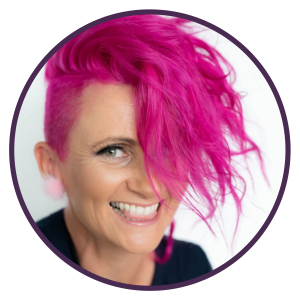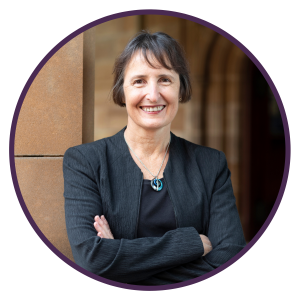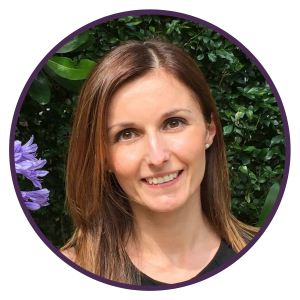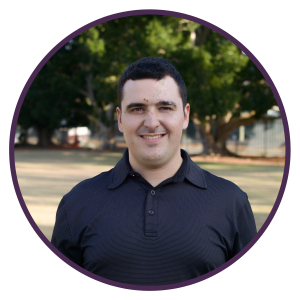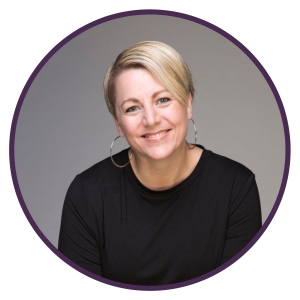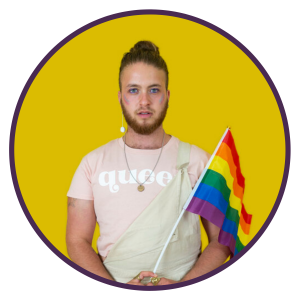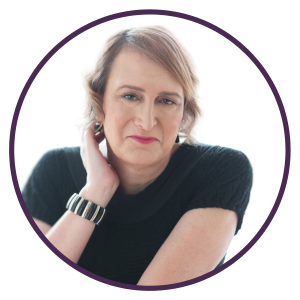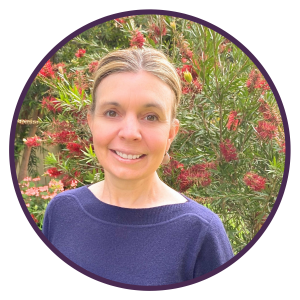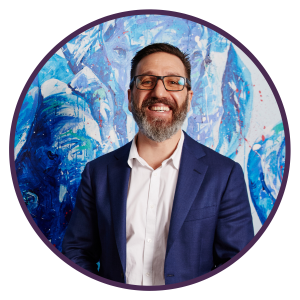Transcript has been auto-generated and may contain errors. Your support on our patreon would go towards being able to provide a human-edited transcript for accessibility.
00:00:00 Andy
Talking today to Professor Maree Teesson AC, director at the Matilda Centre, University of Sydney.
00:00:05 Andy
Marie welcome and thank you for your time today.
00:00:07 Andy
We really appreciate having you on board.
00:00:09 Maree
Absolute pleasure.
00:00:10 Andy
We’ve got so much that we could talk about and explore today you’ve got a real depth and breadth of knowledge around addiction and substance abuse, and all of the things that are connected to that, and I don’t know if I’m starting off gently here or opening up a can of worms from the start, but I want to start by exploring everyday addictions and how they can creep in through socially acceptable, addictive substances. So, I’m thinking here about alcohol, for example, even the habit of just slipping into the local cafe every day for a daily dose of caffeine.
00:00:37 Andy
How inevitable is it that we’re all going to get addicted to something at some point in our lives?
00:00:40 Maree
It’s a fascinating question, and it’s one that has really driven me to do research in this area over quite a lot of years and I wish I had a really simple answer for that, because you know, if you knew beforehand that drinking alcohol, you might get into trouble with it, then maybe you’d be a bit more wary.
00:01:04 Maree
It’s not a simple answer, but that said there are things that leave some people more vulnerable to having problems with substances like alcohol and drugs.
So that’s one of the really important things that we do in our research. Try and work out what leads people to be more vulnerable to have problems with these alcohol and drugs.
00:01:22 Andy
It really does seem that society is at some point really using a lot of peer pressure. In some instances, I I’m thinking for example, if I go out to dinner with some friends and I choose not to have an alcoholic beverage. The questions really come around:
00:01:37 Andy
Why aren’t you drinking, or won’t you just have a small one? That type of thing. So, it’s the sort of thing that we need to kind of start to look at as a society.
00:01:44 Maree
Yeah, you know, problems with alcohol and drugs, the health problems and unfortunately, particularly around alcohol. We do have a strong culture in Australia of linking alcohol continuously with sport or linking having a good time as only being possible if you’re drinking alcohol and it’s just not true.
00:02:06 Maree
And then of course, when people do run into problems with alcohol, there’s a sense of shame and stigma associated with that, and it’s just devastating.
We see for people who have problems with alcohol, it can take up to 18 years before they’ll talk to anyone about those problems. That can mean they can start to have problems when they’re 18 or 19, and they really wait until their mid 30s before they say to a GP, or to a friend: Hey, I think this is really interfering with my life and maybe I need to do something about this.
But that can take 18 years. So, the stigma, and you know there’s a positive side about the fun and people do often drink because there’s a fun aspect to it, but there can also be the negative side.
00:02:51 Andy
Louise and I were talking this morning as well about different contexts in which drinking occurs, and this this 18-year period before somebody reaches out for some help. Is it that they’ve actually just realized that they have a problem or have known for some time that they’ve got a problem? When does that consciousness around that problem start creeping in?
00:03:11 Maree
Creep in, yeah, we have asked people, you know. We’ve said to them oh gosh, you’ve been having problems since you were 18 or 19.
Why was it that you only first reached out in your late 30s and we find two or three different reasons that people talk about one is that they actually didn’t think that there was anything that anyone could do to help them. And that’s a real shame because we do have incredibly effective ways of helping people. The other is that they just felt incredible shame that they should be able to deal with this themselves that everyone else around them was drinking and not having problems.
And of course, that’s a bit of a catch because you don’t know whether your friends are actually having problems or not, so it was that stigma and shame around it.
And lastly, this can really catch it. It’s insidious.
It’s not like one day you wake up and you’re suddenly having a problem. It’s lots and lots of little things accumulating.
It’s not turning up to work because you’re drinking too much.
It’s having a hangover because you’re drinking too much.
It’s feeling like you need to drink more in order to get the same effect.
It’s realizing that you might have been having a problem with the police. That you’ve been caught a couple of times where you’re over the limit. It’s an accumulative thing that can catch people up.
00:04:39 Louise
Back to the idea of shame when it comes to getting help, I suppose for anything like it applies so much, not just even in addiction like drug and alcohol, but even just for mental health in general.
Like actually being able to take that pressure off ourselves and ask for help, I wonder if what would help people to understand is that it’s not a case of when someone says, ‘oh just don’t drink anymore, just don’t smoke anymore, just don’t’. It’s not that easy like there’s physiological things that are going on in the body that are propelling us forward to keep making those decisions, aren’t there?
00:05:10 Maree
Yeah, and we often have this sense that it’s just that you don’t have enough willpower. That if you had enough willpower, if you were strong enough you pull your socks up, then you solve the problems.
And as you said, it just isn’t that simple.
It’s still the case that you can find ways to help, and it’s not that it’s impossible, but it isn’t a simple case of just pull your socks up.
00:05:32 Louise
How do we destigmatize asking for help?
00:05:34 Maree
It’s a really important question. And I think actually having this conversation with you is an incredibly positive way to do that.
I think also that we need to start early to start understanding both the positives and the negatives associated with drug and alcohol use from an early age.
We talked a bit about the fact that drinking alcohol is so positively associated with sports and Australian’s going out. And so, when you’re younger when you’re 13,14 or 15 just before you’re about to start drinking, the message that you can have is incredibly positive, and I think it’s much more important that we give a realistic message and we make sure we don’t normalize, particularly in adolescence drinking.
00:06:25 Louise
I think the stuff with the 18-year data. I mean that hits really close to home.
Me and my experience not with alcohol in as a form of self-medication, but you know, I’d say you know my entire life gone through periods of experiencing anxiety disorders and sometimes mood disorders.
And then when I look at the stats that one in nine Australians experience anxiety disorders or 6% of us experience mood disorders each year like depression, or something like that.
I think it has taken me 18 years to stand up and ask for help.
00:06:55 Maree
Yeah, and the stigma, the stigma issues around depression. Australia has done an amazing job at reducing that stigma for depression and anxiety, and so we do now see that we’ve got increased numbers of people who are feeling confident or not feeling a stigmatized to ask for help for depression and anxiety.
But we’ve still got a long way to go when it comes to asking for help around.
You know alcohol and cannabis and drug problems. I think you’re right. The fact that we have seen such amazing changes with depression and anxiety gives us some hope around alcohol and drugs and even seeing them as health problems rather than just seeing them as either a lifestyle choice or a lack of willpower.
00:07:43 Louise
It’s one of those reasons that I now talk so openly about medication now. And in the last 18 years I would have said ‘Oh no. I should be able to think my way out of a problem like that.’
It’s all in my head or that kind of similar feeling of weakness and shame like I shouldn’t feel like that nobody else feels like that, but now I’m very happy to talk with people openly in conversation about, well, you know, sometimes medications OK, because it helps you get that breathing room to work on things and to change that way that you feel.
So, I suppose to kind of bring that back around to alcohol and the other things that we get addicted to, how do we encourage people to stand up and ask for help?
I mean I can only imagine what someone who has a problem with alcohol or drugs goes through where it noticeably affects their life. cause you can kind of hide with anxiety.
00:08:35 Maree
Yes, yeah, and it’s a lot more difficult to hide with when you when you’re having the consequences of exactly what you just said. then it was a really interesting because we do get caught up in the shoulds and as you were talking then I was thinking yeah people feel like they should be able to get better or it shouldn’t be like.
00:08:55 Maree
This and part of the responding and treatment for alcohol use disorder.
00:09:00 Maree
Others and for drug use disorders is around helping us to see our way through those mind traps cause.
00:09:06 Maree
And I’m a big one for that as well.
00:09:07 Maree
I’m always telling myself I should do this.
00:09:09 Maree
Or I shouldn’t do that and I.
00:09:12 Maree
Have to reframe it as well.
00:09:14 Maree
That’s the way it is or shouldn’t help me because there’s.
00:09:16 Louise
No sure is so unhelpful.
00:09:19 Maree
I tried to ban myself saying should, but they are real skills to learn and just reflecting on.
00:09:26 Maree
That made me think about this.
00:09:28 Maree
Should word in my own life, but they’re real skills to learn about how you can get caught in those traps.
00:09:33 Maree
And then it becomes a vicious cycle and a real skill around therapy is breaking into those vicious cycles of thinking so that people can see a way through it and a way to act in a different way or a different way of coping with life rather than I should be able to cope.
00:09:50 Maree
I didn’t.
00:09:51 Maree
Therefore, I’m gonna drink, and it’s so powerful.
00:09:54 Maree
So powerful.
00:09:55 Maree
So yeah, just listening then.
00:09:57 Maree
Now how do we break down?
00:10:00 Maree
We have had the most amazing success at the moment in breaking down those stigmas and those stigma issues.
00:10:07 Maree
By working with people by working with people who have experienced these problems and understanding where they’re coming from, that’s the first part that we’ve.
00:10:17 Maree
We’ve really learned a lot, and it’s really being in the present of understanding what the barriers are for them, and stigma can be broken down into both having self-stigma.
00:10:27 Maree
So, a real shame coming from yourself and you’re feeling like you should be able to do it better.
00:10:33 Maree
And it can also come externally.
00:10:35 Maree
So, the unfortunately.
00:10:38 Maree
The judgment that happens for others, and so thinking about that self-stigma in particular.
00:10:44 Maree
We’ve worked a lot with using digital storyboards and digital portals and websites to make it as easy as possible for people to get information and evidence based and trusted information.
00:10:57 Maree
So then they can.
00:10:58 Maree
Start to engage with what the issues are.
00:11:01 Maree
And making sure we have that as trusted evidence based and has non stigmatizing both that personal stigma as well as that societal stigma as possible.
00:11:12 Maree
And that’s been incredible to see the uptake, you know.
00:11:15 Maree
Even in areas where there’s addiction to methamphetamine or where there’s problems with methamphetamine.
00:11:21 Maree
We had hundreds of thousands of people logging in, clicking in getting information, and then using that.
00:11:27 Maree
Actually, that knowledge has really broken down the stigma that they felt to ask for help and the stigma that they felt for family members asking for help as.
00:11:37 Andy
Well, I wonder as a part of all of that judgment and self-stigmatizing
00:11:41 Andy
That’s going on how important anonymity is in being able to reach out for help, because I imagine with some of the complexities that go on with substance abuse, there might also be a fear there that they’ll get in trouble by the law for possessing the things that they’re taking.
00:11:53 Maree
Yes, yes, and that anonymity and that ability to reach out with that anonymity particular.
00:12:00 Maree
In the first instance is incredibly important.
00:12:02 Maree
Now I think that is where there is incredible power about making some of those first connections through mediums like digital mediums.
00:12:10 Maree
So, I just really encourage people.
00:12:12 Maree
There are evidence-based sources of information and it’s reaching out to those you know our websites.
00:12:20 Maree
Called cracks in the ice, for example, for methamphetamine, it’s reaching out for those and going to those trusted evidence-based resources because there is a lot of stigma.
00:12:30 Maree
We also talked a lot about the impact on families.
00:12:33 Maree
And families really needing that sense of being a safe haven and just holding things together for people while the chaos of the storm of the drug use happens, and so it’s also for families to be able to reach out and to get that information in the first instance in a way that’s anonymous and non-judgmental.
00:12:53 Louise
Do you think?
00:12:53 Louise
As humans, we’re predisposed to addictions.
00:12:56 Maree
Wow, that’s a really big question.
00:13:01 Louise
We’re addicted to getting addictions.
00:13:04 Maree
Well, you know we do like yeah, it’s a big question and as humans are we free disposed to that you know we have thought about this a lot, particularly amongst adolescents, and we haven’t thought about it, as are you predisposed to getting an addiction?
00:13:23 Maree
But we’ve thought water.
00:13:25 Maree
Some of the risk factors that might mean that you might be more likely to have some challenges, and I don’t want to go down too much of a rabbit hole here.
00:13:34
Ha ha ha ha ha ha.
00:13:36 Andy
She got all the time in the world.
00:13:38 Maree
I think one of the like I’m a parent of teenagers and some of the work that we’ve been doing is trying to understand, you know how teenagers see the world and we’ve been framing it in terms of four different personality or ways that teenagers see the world.
00:13:57 Maree
One of them is.
00:13:58 Maree
Being quite anxious and nervous and we’ve talked about anxiety and depression being related to, you know substance use before but.
00:14:06 Maree
One way, and you sort of know those kids.
00:14:08 Maree
They’re shy and they’re a bit reserved.
00:14:10 Maree
I was one of those kids when I was younger.
00:14:12 Maree
Quite shy, quite reserved.
00:14:14 Maree
This second group of kids who are more prone to seeing the world as a little bit in a negative way now.
00:14:23 Maree
I tend to think about one way of thinking about this is.
00:14:26 Maree
Harry Potter figures in Harry Potter.
00:14:29 Maree
So, for me, you’ve got the shyness and the awkwardness in Hermione.
00:14:35 Maree
You’ve got that sort of more negative thinking, more seeing, the doom and gloom in the world.
00:14:40 Maree
If you think about Ron Weasley.
00:14:44 Maree
And of course, it runs in the Harry Potter series, the third set in the triumphant is Harry and Harry said, go get a.
00:14:53 Maree
He’s a sensation seeker and that’s the third group of ways of thinking about teenagers and the 4th group is more the impulsive kids.
00:15:04 Maree
And I think Voldemort or Tom Riddle is the most impulsive kid.
00:15:08 Maree
You can imagine.
00:15:09 Maree
So, when I talk to the parents of teenagers you know they.
00:15:13 Maree
This resonates with them, and they go, gosh, you did.
00:15:16 Maree
20 years of research to work this out.
00:15:18 Maree
But yeah, you can really think about kids in terms of those predominantly the kids who are sensation seeking like Harry, the kids that are impulsive like Voldemort, the kids who are warriors like Ron and the kids who are anxious like Hermione.
00:15:33 Maree
So, you know where am I going with this with alcohol and with drugs?
00:15:37 Maree
Well, it’s.
00:15:38 Maree
Fascinating, but of those character.
00:15:40 Maree
Sticks we are able to pick up the kids who have those characteristics and then also predict later on in life which of those characteristics lead to which sorts of problems they might have with alcohol.
00:15:54 Maree
And it’s those impulsive and sensation seeking kids that can have problems in terms of binge drinking with alcohol.
00:16:00 Maree
And again, it gets down to.
00:16:02 Maree
They’ll have hot thoughts.
00:16:03 Maree
They’ll have intense thoughts about their emotions, and one way of dealing with those intense thoughts is to drink alcohol.
00:16:11 Maree
For the anxious kids and for the depressed kids, they can find themselves if they’ve got those trays running into problems with alcohol because they drink to cope, they drink to cope with the alcohol they drink to cope with the feeling of negativity.
00:16:25 Maree
So, what does that mean for the research that we do?
00:16:28 Maree
If we’ve been able to observe this and think?
00:16:31 Maree
About they’re not addictive personalities, but their trays that lead people to be more vulnerable to have problems.
00:16:37 Maree
So, can you get in and intervene with those trays?
00:16:40 Maree
Give kids other ways of coping and young people, other ways of coping, and if you do, does that mean they’re less likely to use alcohol as the solution when they turn 18?
00:16:51 Maree
If you work with kids who are 13, you can identify these things.
00:16:55 Maree
Can we give them some different skills and in.
00:16:57 Maree
Doing that, would that change their course?
00:17:00 Maree
Or the.
00:17:01 Maree
So that’s the type of research questions we’ve been asking, and we’ve just finished an amazing seven-year follow-up of 2000 young people where we went in, and we did two really simple, quick 90-minute sessions with them to help them to 1st identify where they fit. Are they sensation?
00:17:20 Maree
Speakers are they mourn towards negative thinking.
00:17:23 Maree
Are they more towards anxious?
00:17:25 Maree
Are they more impulsive and then giving them some skills and we found at the end of seven years you could actually change the trajectory of where they were.
00:17:32 Maree
So, it’s so powerful.
00:17:34 Maree
Adolescents are absolute learning machines.
00:17:37 Maree
And the thing we need to do is work with them to work out ways to give them more positive ways of coping with the world than alcohol or drugs.
00:17:46 Maree
And I just love this research because it can change the trajectory of life for people.
00:17:51 Maree
It’s amazing.
00:17:52 Andy
I wonder, looking at the research that you’re doing and what you’ve uncovered here with those trays, is it likely or possible?
00:17:57 Andy
For example, to be able to use some of these insights to build healthy habits.
00:18:01 Maree
Absolutely, absolutely and.
00:18:04 Maree
A powerful thing and a powerful driving force for young people is wanting to be like your peers and we call this a social influence theory.
00:18:14 Maree
It’s the theory around the at the influence of your peers and influence of what you consider to be normative behavior.
00:18:21 Maree
So, if I can give you an example if you ask.
00:18:24 Maree
13-year-olds.
00:18:25 Maree
How many of their friends?
00:18:26 Maree
Drink, they’ll tell you close to 60 or 70% of their friends drink and it’s nowhere near that many.
00:18:32 Maree
It’s much, much, much lower. It’s like 5% so, but even challenging that belief can then influence Oh well, to be like my peers is not to drink to be my like my peers to be like.
00:18:46 Maree
My peers, they’re thinking they have to drink, but really, to be like their peers, what they do is not drink.
00:18:52 Maree
So using that and presenting that information, particularly in a peer LED way peer to peer, is incredibly powerful, and that can also.
00:19:00 Maree
So, work not just for alcohol, but healthy behaviors like exercise, healthy behaviors like increasing his sleep.
00:19:09 Maree
We talk about them as the big six risk factors for poor health in adolescents.
00:19:13 Maree
So, alcohol, tobacco sleep, sugar intake, physical activity.
00:19:20 Maree
And screen time and they are big six risk factors for poor health in adolescents.
00:19:26 Maree
And yep, you can switch it around knowing this information to actually increase healthy behaviors, not just decrease.
00:19:33 Andy
I’m really interested that you actually included sugar as a part of the Big Six.
00:19:37 Andy
It’s something that we don’t often think about as far as addiction goes.
00:19:40 Maree
Yeah, so the sugar and you know in terms of a risk factor for poor health and sugar intake, is absolutely one of the big six.
00:19:50 Louise
I turn 40 next month.
00:19:52 Louise
Marie happy birthday to me.
00:19:54 Maree
Yeah, happy birthday.
00:19:56 Louise
I don’t.
00:19:57 Louise
I think I’m identifying as a Hermione.
00:19:59 Louise
Is it too late for me now if I don’t have a nice fresh teenage?
00:20:04 Louise
Brain with all of its extra neurons and I’m setting my routine pathways.
00:20:09 Maree
Oh, my golly never too late never too late and you know it’s not as easy as when you’re 13 and 14 or 15 but we sort of know that don’t we?
00:20:20 Maree
We know that with most things in life, it’s a lot easier to do it when you’re 1314 or 15.
00:20:26 Maree
But it is absolutely never too late to turn it around and to create what we’re talking about here is creating positive coping mechanisms rather than relying on what can be short term.
00:20:39 Maree
You know it does make you feel better when you’ve had a drink, but the problem is that that quickly shifts.
00:20:45 Maree
From being a short-term positive to a long term, not positive.
00:20:50 Louise
One of the things I used to, I mean I hardly have a drink now, but I would say that you know, in my early 20s I was probably part of Australia as binge drinking culture.
00:20:59 Louise
Problem Yep, but at one point I think the switch flipped and I realized that after a few drinks like it feels good to have a few drinks at first and then once you kind of lose control of those inhibitions, I mean you lose control, so you no longer have control.
00:21:14 Louise
Also, of the way you feel so you can go really quickly from this is the best night of my life.
00:21:18 Louise
For crying in a gutter on the side of the road because you are just suddenly really down, and everything is horrible, and I started to think that part is not worth it like that feeling of no longer having the ability to talk yourself out of feeling like that because your senses are so impaired is no longer worth it.
00:21:36 Maree
Yeah, and I think people tend to forget that alcohol it is actually a depressant.
00:21:42 Maree
It does depress your mood, so you do get that initial lack of inhibition.
00:21:47 Maree
But yeah, absolutely.
00:21:49 Maree
You then forget that alcohol is actually a depressant, so you do have that sense of the chemical impact.
00:21:57 Maree
Of having our call in your brain is.
00:21:59 Maree
Really raising those emotions of feeling sad and not feeling in control.
00:22:04 Louise
So, should we give it up or should we replace it with something else?
00:22:07 Louise
I mean where is that line like where we say someone got a problem with alcohol?
00:22:11 Louise
Is it 1 glass at night?
00:22:12 Louise
Is it a bottle of night?
00:22:13 Maree
Yeah, there’s amazing work in Australia in this area, and if you’re wanting to set your expectations of not having harm to your health from alcohol, then you know the guidelines are quite low in terms of how much alcohol you should be drinking.
00:22:30 Maree
And we set the NHMRC guidelines quite low for how little alcohol you should be drinking before you start to impact on your health.
00:22:41 Maree
I’m I mean, one big area we’ve been working on is the area of drinking during pregnancy and in the past did it was thought that even having just a glass of alcohol and unfortunately.
00:22:55 Maree
Sometimes women were even encouraged to have it to calm down during pregnancy, but recent research that we’ve done has shown that even small amounts of alcohol, even as low as three.
00:23:06 Maree
4 glasses of alcohol during a pregnancy, particularly early on in pregnancy can result for young children when they’re after they’re born.
00:23:16 Maree
When they’ve turning 9 or 10, we’ve done the follow up studies.
00:23:20 Maree
They can be more likely to have anxiety and depression and have health problems.
00:23:26 Maree
If their mother drank during pregnancy and it can alter the way that our brain develops to leave us more vulnerable to having problems later on.
00:23:36 Maree
So, it’s quite low.
00:23:38 Maree
And I think it’s probably the most important thing is resetting the expectations.
00:23:43 Maree
The expectation?
00:23:45 Maree
I think in Australia is much higher levels of alcohol.
00:23:48 Maree
It’s OK to drink, but I think what’s probably the most important thing we need to do is to reset those expectations so that we have a culture where we’ve got.
00:23:59 Maree
Less drinking.
00:24:00 Maree
And even know drinking is acceptable.
00:24:03 Louise
Now that I rarely drink, I don’t care anymore.
00:24:05 Louise
Marie, though like it would have mattered to 20-year-old me.
00:24:08 Louise
But 39-year-old me just I don’t. I don’t care. I don’t need. I don’t need it. It doesn’t help me feel any better. I feel worse the next day.
00:24:17 Maree
Yeah, yeah.
00:24:19 Maree
And I’m not sure that’s always the case that you have to wait till you.
00:24:22 Maree
You get there.
00:24:23 Maree
Don’t think there are.
00:24:24 Maree
Some 20-year-old to feel that way too.
00:24:27
Would have been.
00:24:27 Louise
And better instead of crying in the gutter outside of Canberra nightclub at like 19, that would have been a better choice to make then.
00:24:34 Maree
Yeah, yeah.
00:24:36 Maree
It’s a really hard thing, though, isn’t it?
00:24:39 Maree
When it’s so much part of our culture and it’s a very hard thing to say to young people that you know no more than 10 a week and four on any day is what we’re talking about.
00:24:49 Maree
If you don’t want to have harms from alcohol.
00:24:51 Andy
It always kind of seems like these hepatitis AD in through the back door. I mean I remember myself when I was in my 20s going out with some work chums and we had somebody in our group.
00:25:00 Andy
That didn’t drink and the questions were all around.
00:25:02 Andy
I’ll come on my might hurt you, that kind of thing, and she had up to that point of her life never even thought about drinking alcohol because it was a part of the culture not to think about alcohol that way.
00:25:10 Andy
I wonder if we maybe need to start swinging around with younger people and teaching them things like self-esteem and how to say no and how to actually strengthen themselves against those social norms.
00:25:20 Maree
Yeah, yeah absolutely.
00:25:23 Maree
You touched on two things there that I thought might be like interesting to talk about as we were in that question, one was teaching young people about how to say no in an assertive way, and we’ve certainly been doing that.
00:25:36 Maree
Through blending those methods with the amazing ancient art of cartoons and storyboards, so we’ve created cartoons and storyboards which I like.
00:25:47 Maree
Love stories between different characters that we’ve worked with young people to develop, and it’s Michael meet Jane or Michael meets Claire or.
00:25:56 Maree
Claire meets Claire and in that their relationship and friendships.
00:26:00 Maree
Build and we talk about how people can have incredibly positive relationships and friendships without the use of alcohol or how alcohol can get in the way of kids playing sport or how you can actually have fun or drink drug refusal skills.
00:26:13 Maree
How do you refuse?
00:26:14 Maree
You know that if you’ve got someone who’s saying to you have a glass, how do you make sure you’ve always got something in your glass so that there’s no?
00:26:20 Maree
Point them, thank you.
00:26:21 Maree
Haven’t got anything in your glass and it would get you now.
00:26:23 Maree
Call, you’ve already got something.
00:26:24 Andy
I’ve learned very quickly to put my hand over the glass, yeah?
00:26:26 Maree
You got your
00:26:27 Maree
Hand over the top all of those incredible skills are or Yep or affirm.
00:26:29 Andy
That’s it, should firm no.
00:26:32 Maree
No, absolutely, but it takes skill to say a firm no in that sort of.
00:26:36 Andy
Oh no, the hand over the glasses my.
00:26:38 Andy
Firm no, I’m very passive.
00:26:40 Maree
Love it, love it.
00:26:42 Maree
So, but they are skills, aren’t they?
00:26:45 Maree
That we don’t get torts, so I’m all for how do we do that?
00:26:46 Andy
Yeah, for sure.
00:26:48 Maree
How do we teach those skills?
00:26:49 Maree
As parents, we need to teach them.
00:26:51 Maree
Parents are incredible influences of young people.
00:26:54 Maree
It’s not just their peers how to peer to peer.
00:26:57 Maree
We teach kids to do that.
00:26:58 Maree
That’s your right to say, no.
00:27:00 Maree
I love the fact that we’ve, you know, the click clack wearing their seatbelts campaign.
00:27:05 Maree
That was a big public health campaign in Australia, and they first started by teaching the parents.
00:27:10 Maree
To say you know you should be putting the seat belts on your kids.
00:27:13 Maree
And that worked to a certain extent, but what was the most powerful was telling the kids that was their human right to have their seatbelts.
00:27:20 Maree
So, in the back of the cards the kids were saying to their parents, it’s my human right for you to put my seat belt on, do it and giving them the power to do it.
00:27:29 Maree
Change our compliance with seat belt wearing.
00:27:31 Maree
It was incredible, so I’m for giving the kids there.
00:27:34 Maree
Skills definitely, and the second bit was women.
00:27:37 Maree
We’ve sort of touched on this a little bit.
00:27:39 Maree
I don’t know about you guys.
00:27:40 Maree
I’m over 50 so I remember going down for thank you, thanks.
00:27:42 Louise
Happy birthday
00:27:44 Andy
Happy birthday
00:27:44
Ha ha.
00:27:46 Maree
I remember going to Tasmania in the early 80s and going into a bar to have a beverage after being on a long walk and being ushered into the ladies lounge.
00:27:59 Maree
I was not allowed to have a drink in the lounge at the front of the pub ’cause there was a ladies lounge and that relationship between women and alcohol in our country and around the world has changed dramatically.
00:28:11 Maree
’cause if I went down there today, I wouldn’t be ushered over into a separate spot.
00:28:16 Maree
Drinking wouldn’t have been seen as taboo and stigma.
00:28:19 Maree
For a woman, if I go down there today, I can.
00:28:21 Maree
Drink and I’ll be in the front power.
00:28:23 Maree
I don’t have to go into the back where I’m stigmatized so drinking for women has actually been a lot more.
00:28:30 Maree
It’s now a lot more normative, and because of that, we’re actually seeing increasing rates of problems for alcohol in women.
00:28:39 Maree
And it’s really sad, so I’m trust me.
00:28:41 Maree
I am 100% for women rights and I’m 100% for equality, but we’ve also unfortunately for women.
00:28:49 Maree
Now seeing similar rates of problems for young women, particularly around the harms from alcohol.
00:28:56 Andy
It almost sounds like an exclusive club, doesn’t it?
00:28:58 Andy
The Ladies lounge, but.
00:28:59 Maree
Ladies Lounge I know no, but it wasn’t it was it was it was an exclusive club you weren’t allowed to be seen drinking at the.
00:29:01 Andy
It had the opposite of faith.
00:29:03 Louise
And exclusive club.
00:29:08 Maree
Front of the hotel.
00:29:08 Andy
I’m fascinated by this, so you know now we can talk about it because the ladies loungers don’t really exist anymore, but with the alcoholic beverages different to the meant area where they are softer.
00:29:18 Maree
Yeah, they weren’t softer, they were, they were.
00:29:23
Not in this.
00:29:25 Maree
Not in this stuff in Tasmania they went solid.
00:29:31 Maree
No, it’s a good question, but no, they’re not softer.
00:29:34 Andy
I I’m just I’m picturing.
00:29:35 Andy
Ladies with shanties and Pimm’s compared to you know.
00:29:37 Maree
I think there was a lot of shanties.
00:29:39 Maree
I think there were a lot of shanties but the but the drinks on offer was certainly at this point in time in the 80s.
00:29:45 Maree
They weren’t softer, but there were a lot of shanties.
00:29:46
You were already there.
00:29:47 Maree
Yeah, but you know that is also a challenge about what we offer.
00:29:52 Maree
You know alcohol has changed in the types of alcoholic drinks that we have available to us.
00:29:57 Maree
So, when I was growing up, it was the bitterness.
00:30:00 Maree
Of wine.
00:30:00 Maree
It was the bitterness of beer, and that’s actually incredibly protective.
00:30:04 Maree
When you’ve got a young pallet, you don’t like, it’s hard to drink alcohol.
00:30:08 Maree
That’s wine or beer because it is quite bitter.
00:30:12 Maree
The drinks that are available now are much sweeter.
00:30:16 Maree
We’re getting back to the mix of sugar and alcohol and the complexity of having those.
00:30:20 Maree
Two things together, but the drinks that are available now are much sweeter, so they actually are much more palatable to young pal.
00:30:27 Louise
Do you think that peer to peer is kind of the antidote to peer pressure?
00:30:31 Maree
In our research, I have been amazed at the power of peer to peer.
00:30:35 Maree
It has to be mixed with the right evidence and the right information.
00:30:41 Maree
So, when we talk about peer to peer, we’ve been doing that through.
00:30:45 Maree
As I said before, cartoons and storyboards ’cause it’s a big responsibility on young people.
00:30:51 Maree
To deliver peer to peer, I mean they’re living it themselves, right?
00:30:54 Maree
They’re in the middle of it, so we’ve used the medium of cartoons because that can empower young people.
00:31:01 Maree
Our cartoons are all cartoons of young people.
00:31:03 Maree
We don’t have older people.
00:31:05 Maree
In them, but it allows young people to say the things that and teach each other, the things that they want to teach each other, without needing to feel like they’re in a classroom.
00:31:15 Maree
And they could say, well, you know.
00:31:16 Maree
Oh well, I did it.
00:31:17 Maree
So therefore, you know it’s OK for you to do it.
00:31:19 Maree
It’s quite hard to do peer to peer face to face, but we’ve used the medium of cartoons.
00:31:24 Maree
Incredibly powerful.
00:31:25 Maree
To do this.
00:31:26 Louise
Can we transfer those skills like those Peter Pier skills as an adult to make a difference in our circle of influence to help people kind of have happier, healthier mental outcomes so they don’t need to rely so much on self-medication?
00:31:41 Maree
And again, having positive ways of having fun that are not just associated with alcohol is incredibly powerful in creating the environment where people can interact with each other.
00:31:53 Maree
It’s not having so much alcohol always at parties, not having them always focused on alcohol.
00:31:59 Maree
Having events that don’t always have.
00:32:01 Maree
To have our cola at the center of them in terms of the peer-to-peer support, giving each other support in a positive way rather than oh everyone should be drinking too.
00:32:10 Maree
You know it was fantastic.
00:32:12 Maree
That you made the healthy choice not to drink at the party.
00:32:15 Maree
Whenever do we say that yeah and really, why don’t we?
00:32:19 Maree
Why don’t we say to people it was fantastic?
00:32:21 Maree
You made that positive choice in your life.
00:32:24 Maree
You know not to drink.
00:32:25 Maree
Or yeah, I it would be an amazing day that we got to that position in Australia.
00:32:30 Maree
I think it’s gonna take some time.
00:32:32 Louise
How about a workplace kind of context?
00:32:35 Louise
You know, like that kind of come along to this event that we’ve got tonight.
00:32:38 Louise
It’s optional, but it’s mandatory and when you get there, there’s a drink and you cannot drink.
00:32:44 Louise
But then you’re not a team player.
00:32:45 Louise
How do we kind of tackle that workplace culture that goes around this kind of enforced drinking socialism?
00:32:52 Maree
Yeah, again I’d like to think that you know, eventually we can get to the sophisticated space where we can actually have work events.
00:33:00 Maree
We don’t have to have alcohol associated with them, but you know, that’s a bit of a way off.
00:33:04 Maree
It’s both again individuals, so having those skills and testing it yourself like can I go to the party and not drink?
00:33:12 Maree
And still have fun.
00:33:13 Maree
And that’s a great behavioral experiment that you can run with yourself.
00:33:16 Maree
Maybe you don’t have to do it every party, but you try it for one or two parties and test that.
00:33:21 Maree
Do that bit of a behavioral experiment of.
00:33:24 Maree
What we call behavioral experiment, which is go to the party, see what your behavior is like.
00:33:28 Maree
Without the alcohol, you might enjoy it.
00:33:29 Maree
I think you know we were just talking about it.
00:33:31 Maree
Sometimes it actually can be more fun to do that.
00:33:33 Maree
And then it’s also being around peers and having the conversations with them that maybe this is what you’re going to choose to do and then gathering strength from.
00:33:42 Maree
You’ll be surprised how many.
00:33:44 Maree
Other peers will also be thinking that that’s something that they might like to try.
00:33:47 Maree
We have an experiment and see whether we can actually have fun without drinking.
00:33:51 Andy
I do remember doing some experiments earlier in my life around this exact same thing and I kind of found that over time the people that I hung around with changed.
00:34:00 Andy
Because being the only sober one in the room isn’t always a heap of fun, and it gets a bit boring.
00:34:06 Andy
I think sometimes from my own experience I would drink because it was a way of joining in with the entertainment rather than actually taking that move and making myself that separate person in that social environment.
00:34:17 Maree
Yeah, yeah it can change.
00:34:20 Maree
It can change the people who you’re with and that’s such.
00:34:25 Maree
An interesting observation because I think it probably creates UA.
00:34:29 Maree
Chuck and more complex group of friends who like to do different things, and that’s certainly been my personal experience and it’s been the feedback that we get from people who go through our programs and our treatment programs.
00:34:41 Maree
So, changing this has actually meant that they’ve got a more rich and more interesting lifestyle.
00:34:46 Maree
People who find different ways of having fun.
00:34:48 Louise
I think one of the things like keep hearing you say comes out of this as like as you look at your relationship with drugs and alcohol and you work towards building a healthier relationship.
00:34:58 Louise
You kind of set these boundaries up.
00:35:00 Louise
Yourself of what’s acceptable to you and it takes that strength to say, I suppose.
00:35:04 Louise
Noda peer pressure, and I’m wondering specifically what skills will help with that, but also how they can be transferable to other things because that’s a case of stepping into your own personal power in regard to your relationship with drugs, but you could do that in relationship to toxic.
00:35:20 Louise
Friendships or anything that’s really impacting your emotional well-being.
00:35:24 Maree
Yeah, there’s a lot to be said for the skills that are, as you said, these are skills that can flow across not just around relationships with drug and alcohol, but they are phenomenal life skills to have, and I think I said earlier.
00:35:39 Maree
They even practice making sure I don’t say should and that.
00:35:42 Andy
Shouldn’t say should.
00:35:43 Maree
Yeah, that’s right band.
00:35:48 Maree
It’s completely banned, and I use that in all sorts of aspects of my life, so I 100% agree these are amazing skills that you can have and that you can transfer across so many different areas.
00:36:00 Louise
Are there any other specific ones that come to your mind that we can kind of adopt right now?
00:36:05 Maree
The thinking traps of getting into the spiral of feeling anxious, drinking and then getting more anxious.
00:36:12 Maree
But the only way to cope with it is so the thinking traps and the spirals and observing them.
00:36:18 Maree
There are some great skills around just even if you think you’re starting to have a few problems with your alcohol.
00:36:24 Maree
Use than using a diary to just write down when you’re drinking, because your brain can play tricks on you, and you can think you’re not drinking as much as you actually are.
00:36:32 Maree
So just even the simple method of actually writing down how much you’re drinking can give you some feedback should is an incredibly powerful one to work with, and just challenging that normative stuff, you know.
00:36:44 Maree
Everyone is doing it.
00:36:45 Maree
Maybe it is and everyone that’s an incredibly powerful want to.
00:36:48 Louise
The thing that we took on board from last time that you said, and we’ve you know it’s been three weeks or so in between our last chat that we’ve actively done is we’re trying to stop saying, should, ah, fantastic.
00:37:00 Louise
It’s surprising how many times I though I’ve caught myself doing it now that you’ve pointed it out that it’s a thing that people say.
00:37:06 Louise
And yes, yeah, it’s oh, it’s hard.
00:37:09 Maree
It’s quite catchy, isn’t it?
00:37:11 Maree
It is quite hard.
00:37:12 Maree
It’s quite catchy, but I also find it incredibly empowering to recognize it in myself and to catch myself and now get quite a sense of relief.
00:37:16 Louise
Yes, left.
00:37:23 Maree
And I recognize that I’m saying should.
00:37:26 Maree
UM course.
00:37:27 Maree
Now I’m going to stay home all the time.
00:37:30 Louise
You’re going to be so conscious of it after this chat.
00:37:32 Maree
In my life.
00:37:35 Maree
I’m like that little word should is so powerful because it’s so laden in guilt and expectations.
00:37:43 Maree
So, I think really, it’s not underestimating the power that one word can have in our lives and the way that we can change the way we interact with the world.
00:37:53 Maree
By reflecting on that and by just making a small change, what seems like a small change.
00:37:59 Maree
But I think you have both picked out where it can snowball into being a really.
00:38:04 Maree
Large positive change.
00:38:05 Maree
I’m so happy to hear that works for you.
00:38:08 Maree
The way it works for me.
00:38:08 Louise
Yeah, I noticed it in things like particularly.
00:38:12 Louise
I suppose in forecasting stuff you know.
00:38:14 Louise
Oh, I should have this done or I should have this figured out by now.
00:38:18 Louise
And who’s really putting these arbitrary rules on things?
00:38:20 Louise
Because it’s just adding anxiety to the pile that didn’t need.
00:38:23 Louise
To be added, yeah.
00:38:25 Maree
And I should feel this way, or I should feel that way and again like you said.
00:38:29 Maree
It’s adding the anxiety onto that pile, and you really don’t need to add any more anxiety onto that pile and expectations on ourselves like we are in control.
00:38:39 Maree
We can actually set the rules and we can set the timeline and to allow other people to do that can just really increase that anxiety.
00:38:47 Louise
What are you replacing your shoulds with when you?
00:38:49 Maree
Oh, I try and set them into a much more realistic.
00:38:54 Maree
It depends on what the area is that I’m saying should in a big one for me is, you know I should finish my work a lot faster than I am finishing it.
00:39:06 Maree
And the reality is that I’m finishing.
00:39:10 Maree
The time that I am.
00:39:12 Maree
Finishing it, there are factors that are associated with that.
00:39:15 Maree
I may like to do it slightly faster or in a different way, and I can then by chucking away, should think about well, what are the things that stop me from doing it in the way that I wanted to do it.
00:39:30 Maree
Another strategy I use.
00:39:33 Maree
Not I should finish the work, but what are some of the positive things about finishing earlier?
00:39:40 Maree
What are some of the less positive things about finishing earlier and how can I get to those?
00:39:45 Maree
So, checking away should allow me to pull the issue apart a little bit more and to reflect that.
00:39:52 Maree
OK, I might be doing it.
00:39:53 Maree
Slower, but I’m still getting it done, so it allows the positive in.
00:39:57 Louise
One of the subjects we were going to head into last time was kind of a pros and cons of when we use substitutes for.
00:40:05 Louise
I feel like I’m flipping completely from should.
00:40:07 Louise
But for our addictive behavior as opposed to kind of investigating the cause like we were thinking, you know some people might smoke.
00:40:15 Louise
They might try and replace cigarettes with lollies that kind of a thing.
00:40:19 Louise
Whether this is a good thing to do or whether it’s just another problem.
00:40:23 Maree
We’ve always got the balancing going on in our heads, haven’t we?
00:40:27 Maree
And I think what you’re talking.
00:40:29 Maree
About there is thinking through the levels of harm that our behaviors, the things that are good, or the things that are not so good about our behavior and where we land with those.
00:40:41 Maree
I think you descend talking about replacing, say for example, alcohol within sugary drinks.
00:40:48 Maree
Yeah, or with.
00:40:49 Maree
Police this poms associated both of those things.
00:40:53 Maree
It’s working out what the better of that balance is sort of better to not quite 2 evils but the better of two options.
00:41:01 Maree
And perhaps it’s getting that balance right?
00:41:04 Maree
That’s a really challenging thing for people and there are options.
00:41:09 Maree
Where you can go for the healthy option, but maybe you.
00:41:12 Maree
Don’t have to do that every single time.
00:41:14 Maree
Maybe you don’t have to go to the unhealthy option every single time, but unless you think about what your options are, you won’t have the choice to go for one or the other.
00:41:23 Andy
With their choices in re framing the way that we’re thinking about it, it’s more about trying to give us something healthier to look forward to in general.
00:41:29 Andy
It is, you know they always over the cigarettes or whether it’s something else we’re replacing for short for example.
00:41:35 Maree
Yeah, and part of that balance of balancing out whether you make one choice or.
00:41:40 Maree
Another it’s tide up in short term and long term so the lolly can be really gratifying in the short term.
00:41:48 Maree
But we know we’re going to be putting on weight or we’re going to be increasing the risk of having tooth decay or increasing the risk of longer-term heart disease.
00:41:58 Maree
We do often think about.
00:42:00 Maree
What’s right up in front of us and then discount what the consequences could be longer term so.
00:42:08 Maree
One of the things is actually writing it down and acknowledging that they’re a short term, and that there are longer term consequences to what we do.
00:42:15 Maree
We are incredibly clever as humans at discounting those longer term.
00:42:21 Maree
It’s like we’re sort of inbuilt bravery machines.
00:42:24 Maree
We look at the upfront and we don’t think about the.
00:42:28 Maree
Longer term.
00:42:29 Maree
And sometimes the more serious harms and our brains are wired for that.
00:42:32 Maree
So, it’s a challenge to make sure that we identify those and take those into consideration when we’re making our choices.
00:42:39 Andy
It’s almost like it’s too easy to fall into the trap of.
00:42:42 Andy
There’s always tomorrow, tomorrow’s another day.
00:42:44 Andy
This is the long-term thinking that you’re thinking about, yeah.
00:42:46 Maree
Yeah, that type of long-term thinking that’s such a great example.
00:42:51 Maree
You got the chocolate block there.
00:42:52 Maree
I’ll put it off.
00:42:53 Maree
I’ll have it today, but I’ll put off the change to tomorrow.
00:42:57 Maree
I think that comes back to where it’s.
00:43:00 Maree
A good idea of thinking about what are the good things about doing that?
00:43:04 Maree
You’re going to get the initial gratification, but maybe not some of the good things about doing that.
00:43:09 Maree
Well then tomorrow and tomorrow and tomorrow you’ll have to do if it’s eating that chocolate bar.
00:43:14 Maree
The accumulation of that sugar will end up.
00:43:17 Maree
You’ll have to do a lot of extra space in order to counter that.
00:43:20 Maree
So, it’s being really explicit about the decision, isn’t just about what’s happening to you right now.
00:43:27 Maree
The decision is also about what’s going to happen next week, when every day you eat that chocolate.
00:43:33 Louise
Reminds me of that.
00:43:34 Louise
Is it the marshmallow experiment where they put the marshmallows in front of the kids in a room and said you can either have one now or you can have five if you wait 15 minutes and no one and no one could wait 15 minutes, I think?
00:43:46 Maree
That’s so true and kids are really good kids, so kids are hard wired to get those marshmallows.
00:43:49 Andy
Would be.
00:43:50 Louise
Me too.
00:43:56 Maree
As that kid.
00:43:57 Maree
You know they’re part of their brain.
00:43:59 Maree
That should kick in and allow them to do all this decision or work.
00:44:02 Maree
The front part of the brain, the prefrontal cortex, isn’t well developed, so it absolutely they’re really wired for taking risks, and you actually want them to.
00:44:12 Maree
You want them.
00:44:13 Maree
Experience lots of things in life.
00:44:15 Maree
That’s why kids particularly have trouble with that marshmallow experience.
00:44:19 Maree
Adults we got a bit more brain development.
00:44:21 Maree
We should be able to kick into gear that decision part of our brain.
00:44:24 Louise
If we intellectually know that we’re better off waiting for 15 marshmallows later instead of 1 Marshmallow now, or if we’re better off making a healthier choice because alcohol drugs are not doing good stuff for us in the long term.
00:44:39 Louise
But we emotionally go for the one marshmallow or the booze.
00:44:43 Louise
How do we kind of switch that thinking?
00:44:46 Louise
Are there steps that we can take that actually help us make those long-term goals?
00:44:51 Louise
Something that we can feel like we’re achieving now?
00:44:54 Maree
It’s emotionally and it’s also through habit, so we are also excellent at picking up cues and habit.
00:45:03 Maree
And the things that we would normally do so part of the way of dealing with this is creating some new habits and so the habit might be that you have two or three or four you know glasses.
00:45:14 Maree
Of wine, even two glasses of wine in the evening.
00:45:17 Maree
Maybe you have a glass of wine and a glass of water.
00:45:19 Maree
You get into the habit of all.
00:45:21 Maree
Having a glass of water in between having the glass of wine, so part of it is fun learning and then learning new healthier habits so that they become and practicing them, so they become really second nature.
00:45:34 Maree
Having a break in and allowing yourself to have a break from alcohol particularly.
00:45:41 Maree
Over, you know setting a time, but having that break allows you to experience how you feel without actually having it, so again breaking that habit and breaking that you know expectation.
00:45:51 Maree
So, it’s very much thinking through ways to both allow you to change that behavior, but also to allow you to.
00:46:00 Maree
Changed the way that you think about things and to challenge some of those thoughts that you might think.
00:46:04 Maree
The only way that you can have fun is by drinking, or the only way that you can have fun or interacted.
00:46:10 Maree
A party is by drinking.
00:46:12 Maree
It’s a really interesting experiment to go to a party and test that out.
00:46:16 Maree
Can you actually have fun at a party without drinking now?
00:46:20 Maree
I’m making this sound like it’s super easy and it isn’t, and it takes as much practice as it takes as we talked about earlier to change your.
00:46:29 Maree
Thinking and change the way that you talk about things.
00:46:33 Maree
That’s really simple example of should change behavior takes as much practice and is and is effortful like it is with the short example.
00:46:41 Andy
How long does it take to change a habit?
00:46:43 Maree
That’s a really good question, and the reason I say it’s a really good question is because it can take a minute to change that.
00:46:52 Maree
Sort of first instance actually change their behavior, but it can also take a lifetime, so exercise is a really, really good example.
00:46:59 Maree
You can think to yourself, OK, I’m going to get up.
00:47:02 Maree
I’m going to exercise, and you can do that, and often people can do that for first three or four or even seven days.
00:47:08 Maree
And then something happens, and they don’t do it on that 7th day, and they can.
00:47:12 Maree
Then think well, maybe I can’t keep doing this and doubts can come in and I should be able to do it all the time.
00:47:18 Maree
There’s that should word again.
00:47:20 Maree
And because they didn’t do it on that one day, they think it’s all lost.
00:47:24 Maree
But what about re framing that as well?
00:47:26 Maree
You actually did it for seven days.
00:47:28 Maree
That is fantastic.
00:47:30 Maree
So, if you did it for seven, maybe you can do it for another 7.
00:47:32 Maree
So not letting that little glitch in the change in behavior make you feel like that.
00:47:37 Maree
You can’t change your behavior and you know we’re really.
00:47:41 Maree
Wired to have those doubts and one of the big challenges is taking that information that you got in challenging that the information is so powerful.
00:47:49 Maree
The information that you did it for seven days, remembering that and using that as your strength, I’m changing the behavior going forward.
00:47:57 Louise
Do you think we need to show ourselves more empathy and forgiveness?
00:48:01 Louise
Not changing things as fast as we think we should do.
00:48:05 Maree
Them, yeah definitely.
00:48:06 Maree
And holding on to the positives, holding on to what you can do and amplifying what you can.
00:48:13 Maree
I’ve got a little bit of a saying I try and throw away my failures and hold on to my successors and I acknowledge the failures.
00:48:21 Maree
I try and learn from them, but after I’ve learned from them, I’m going to throw them away because I really want to focus on where the successors are and it’s the same in changing any behavior, whether it’s eating those chocolate bars.
00:48:33 Maree
Every day, or whether it’s changing your behavior so you can get up and.
00:48:37 Maree
Exercise and the habit is what is really cool.
00:48:41 Maree
It can lead us down the pathway of things that are not helpful for us.
00:48:45 Maree
But habit can also lead us down the pathway of things that are great.
00:48:49 Louise
For us, hear stories of people they say I went cold Turkey on something I was able to give it up overnight and I never thought about it again, but.
00:48:57 Louise
I’m wondering if you think it really exists or.
00:49:00 Louise
Or if cold Turkey is really just that kind of final manifestation of a whole series of other decisions that we’ve made along the way that maybe weren’t so conscious.
00:49:10 Maree
Yeah, it’s really interesting question and it’s a very interesting issue to think through ’cause you know some people can do that.
00:49:17 Maree
They can say tomorrow.
00:49:18 Maree
I’m never eating a chocolate bar ever again, and it happens.
00:49:21 Maree
They don’t, you know, we do have in our research knowledge of people who have decided tomorrow.
00:49:27 Maree
I’m not smoking and they.
00:49:29 Maree
Stop smoking, but it’s still more the exception than the rule and it’s still for most people it will take effort and it will take time to change those behaviors.
00:49:41 Andy
We were chatting to a successful CEO yesterday and.
00:49:46 Andy
He was lost when it comes to building the company and striving for his goals.
00:49:51 Andy
He doesn’t actually make failure an option.
00:49:53 Andy
Is that feasible?
00:49:54 Maree
So, he’s coming from a CEO perspective, so I suppose it depends on your XP.
00:49:59 Maree
Mutations if the question is, is it possible to not have values that failure isn’t an option?
00:50:06 Maree
I come both from a research perspective and I come at this also from human behavior and addiction and for me taking that context, we have to learn from failure.
00:50:19 Maree
Research and we also in a sense in addiction.
00:50:22 Maree
It’s learning from failure where we’ve failed or haven’t been able to change the behavior that we want to change.
00:50:28 Maree
It’s a different thing.
00:50:29 Maree
To say failure isn’t acceptable.
00:50:32 Maree
I’m not even going to allow failure to.
00:50:35 Maree
I’ll learn from that failure, but then I’ll throw it away because it’s not going to define how I will interact with the world in the future.
00:50:43 Maree
It won’t define for me as a researcher, weather I’ll try something new again, ’cause researchers about trying to take a bit of risk trying.
00:50:50 Maree
You if I fail once, it’s not going to stop me from trying again.
00:50:54 Maree
If I fail once with changing my behavior, it’s not gonna stop me from trying again, but I think that’s a risk.
00:51:00 Maree
We’re saying that failure isn’t an option because it doesn’t allow you to learn from it, and it also doesn’t allow you to move on if it’s gonna happen.
00:51:08 Maree
My view is in life failure.
00:51:10 Maree
Will happen.
00:51:11 Andy
I wonder if that’s a risk.
00:51:12 Andy
Sometimes if it’s falling into a trap of toxic positivity where some people say it’s been that for them works.
00:51:19 Andy
So, this person that I take fat off the table because that’s his approach into making sure he bounces back and making sure he doesn’t let any setbacks back or affecting that he’s.
00:51:29 Andy
Give up, so do we really need to start looking more into what we’re saying and how we say it know that might be supporting us or.
00:51:36 Maree
Otherwise, I really love that term toxic positivity.
00:51:41 Louise
We’ll get it printed on the paycheck.
00:51:41 Maree
I think that’s amazing wow.
00:51:45 Maree
I, I think let’s Chuck out toxic positivity in toxic negativity and let’s talk about greater compassion so.
00:51:54 Maree
It’s being self-compassion and compassion to others.
00:51:58 Maree
So, I do love that toxic positivity makes me want to throw it out, but.
00:52:05 Louise
I think we’ve found the subject.
00:52:06 Louise
Of your next research paper.
00:52:08 Maree
No exactly I.
00:52:11 Maree
I have a very.
00:52:13 Maree
Person you probably hear this, but I compassion first but.
00:52:18 Maree
A human understanding that we’re human that.
00:52:20 Maree
Comes first.
00:52:21 Louise
How do you think that someone recognizes their cycle and complexities behind them?
00:52:27 Louise
Self-medicating, if you’re stuck in the cycle, maybe you don’t know it.
00:52:29 Maree
Yeah, yeah, it’s incredibly powerful, and again, this is a strategy that I use in everyday life as well, and that’s a bit of a theme of what we’ve been talking about to write things down, to observe patterns, to understand when things are happening, the relationship between feeling stressed, the relationship between the triggers.
00:52:49 Maree
For you, the relationship trim are you using substances are using alcohol or using drugs to cope.
00:52:55 Maree
And then what does that mean?
00:52:56 Maree
Cope with what and when is that most intense?
00:53:00 Maree
And then when you are most vulnerable, so it’s both my researcher.
00:53:03 Maree
But also, our approach is to try and break it down into bite sized chunks.
00:53:09 Maree
Break it down into parts that you can actually address rather than seeing it as a global well.
00:53:15 Maree
I drink to cope and that’s all.
00:53:16 Louise
There is to it if someone is stuck in that cycle as well, there might be a lot of physiological.
00:53:21 Louise
Stuff going on too, right?
00:53:22 Louise
Well, I’m sure there is.
00:53:23 Louise
Is there like a Cliff notes version you can give us of kind of the effects of alcohol and drugs on the brain that maybe people don’t realize.
00:53:30 Maree
I think that particularly with alcohol, people are very used to the idea of drinking, and that first sense of feeling euphoric are more relaxed and more engaged feeling more social.
00:53:43 Maree
They’ve quite used to that and quite used as their associating with drinking and in a sense, we do have that.
00:53:50 Maree
As a message in our advertising sport, particularly, a lot of advertising of alcohol connected to sport and sport is such a positive act.
00:54:00 Maree
Activity for people to be involved with fun enjoyment.
00:54:03 Maree
So, I think people have really got that connection.
00:54:07 Maree
I think what they don’t have is that in the end you know alcohol is a depressant so the longer-term effects are that you do feel a sense of hopelessness and a sense, and alcohol can exacerbate that.
00:54:20 Maree
So, I feel we very much connect alcohol with that euphoric effect, and we don’t connect it with the fact that longer term it is actually.
00:54:28 Maree
Depressant so understanding that and when it flips from being joyful through to not is really, really important, and similarly, methamphetamines similarly with stimulant drugs, you get those initial rush is that we then prime our brain to be expecting the dopamine and the neurotransmitters which.
00:54:49 Maree
Give those pleasurable effects and when you take the drug away, your brain and the neurotransmitters you’ve depleted them in your brain and you’re really wanting those.
00:54:57 Maree
And that’s what drives you to.
00:55:00 Maree
Really then crave and need that drug to feel normal.
00:55:03 Andy
I feel like I’m particularly in the context of the current covid wave in Sydney and the pandemic in general.
00:55:09 Andy
There’s probably errors people to reach for some of these things to make themselves.
00:55:14 Andy
Feel better or.
00:55:15 Andy
To self sooth.
00:55:16 Andy
What are the some of the things in your toolkit that actually make you do that?
00:55:20 Andy
I mean, you know it’s pretty.
00:55:22 Andy
People questioned us on how they’re not a drug addict, but he it’s from watching your good mental health toolkit.
00:55:29 Maree
I think the fact that you brought mental health into that too is really important.
00:55:33 Maree
You know what’s in the mental health toolkit is a really good way of thinking about what are the things that I do to not then find myself at the end of the day.
00:55:41 Maree
The only thing I feel like I can do to cope is to have a drink.
00:55:45 Maree
OK, so there’s about four things.
00:55:47 Maree
One of them we sort of already.
00:55:48 Maree
Touched on, and while it’s super important at the moment to keep up with what’s going on in the news, it’s also important to cut yourself a bit of a break and have a bit of a break from that.
00:55:59 Maree
So it might be that you don’t have to get up and the first thing you do is look at the news now in the areas that are locked down at the moment you don’t get the first set of news about the latest changes until 11:00 o’clock.
00:56:12 Maree
So, what about making sure at least you don’t look at your social media feed as the very first thing go bro.
00:56:19 Maree
Wash your teeth and go and have your breakfast before you actually look at your social media.
00:56:23
Maybe yeah.
00:56:23 Louise
Can I pet my cats too?
00:56:24 Maree
So, oh my golly when you know the funniest thing as you just said that my cattle doctors bumped in here and jumped on my lap and I was about to say go pet your cat.
00:56:25 Louise
Is that alright?
00:56:35 Louise
I try to look at my phone in the morning and then Cat Stevens knocks it out of.
00:56:39 Louise
My knocks it.
00:56:41
Ha.
00:56:41 Louise
Out of my hand.
00:56:42 Maree
Ah, it’s a really scary the number of people who look at their phone before they do anything else in the morning.
00:56:48 Maree
How many people look at their phone before they have breakfast?
00:56:50 Maree
So, challenge yourself.
00:56:52 Maree
Actually have breakfast.
00:56:53 Maree
Then look at your phone.
00:56:54 Maree
So that’s one.
00:56:55 Maree
The other one is.
00:56:57 Maree
Physical exercise is so important for our mental health.
00:57:01 Maree
So even in lockdown.
00:57:03 Maree
We’re still able to have a walk, so it’s making sure that you have those.
00:57:07 Maree
If you’re feeling overwhelmed, having.
00:57:09 Maree
The walk is really, really important for dealing with those feelings.
00:57:13 Maree
That’s anxiety and those depression feelings.
00:57:15 Maree
We are in an incredible time of anxiety.
00:57:18 Maree
With Covid, we’re worried about our loved ones.
00:57:20 Maree
We’re worried about what life will be like in the future.
00:57:23 Maree
Can have a really strong sense of not feeling in control, so for me, it’s looking at the things that I can control.
00:57:30 Maree
So, what’s something in a day that I can control cannot?
00:57:34 Maree
I choose that today.
00:57:36 Maree
I’m going to cook something.
00:57:37 Maree
Can I choose that?
00:57:39 Maree
Today I will go for two walks.
00:57:42 Maree
Can I choose that?
00:57:43 Maree
Today I will start a new activity, or I will ring a friend.
00:57:47 Maree
What’s something that you can control and then take pleasure in the fact that you chose to do that today?
00:57:54 Maree
Even though there’s a lot of other things you can’t control in our lives at the moment, and that’s the virus in particular, I think I’ve given you my 4 big ones, probably my last one is.
00:58:05 Maree
Work out how to connect and that is becoming increasingly more difficult originally in 20.
00:58:13 Maree
20 zoom, you know it was a bit interesting and there were all sorts of different ways you couldn’t connect over zoom and we were having trivia parties and we were even just talking to each other over zoom.
00:58:25 Maree
But now we’ve got a lot of fatigue.
00:58:27 Maree
You’ve got to think of different ways to connect over.
00:58:30 Maree
So, one of the ones we’ve been doing at work is the 1st 5 minutes of a zoom.
00:58:35 Maree
Everyone puts their microphone on, and people are off mute, and we just let the chat flow for five minutes in a chaotic way, and it makes it feel like we’re having a normal as possible interaction over.
00:58:47 Maree
So, lots of little, tiny strategies about how to connect in a world where we’re physically distancing so socially connect in a world where we’re physically distancing, so they’re the sort of four ones I’ve been trying to practice every day.
00:59:00 Maree
But it’s not easy, no?
00:59:03 Louise
We had this idea this morning in our morning meeting that we should try and start every day with like a pump-up song because Obama used.
00:59:11 Louise
Come lose yourself and then we were like we’re going to listen to our pump-up song and then when you go back and we’re going to say three good things that happened yesterday and then.
00:59:11 Maree
I love that.
00:59:18 Louise
Three good things that.
00:59:19 Louise
We’re looking forward to today, so I love it.
00:59:22 Louise
That’s ours.
00:59:22 Maree
Yeah, I love it.
00:59:23 Louise
That’s our new strategy going forward.
00:59:25 Maree
That is brilliant, and we’ve just gotta keep thinking up new strategies, don’t we?
00:59:29 Maree
Said that, they’re not boring.
00:59:30 Andy
Yeah, gotta keep having fun but somehow.
00:59:32 Maree
Somehow having fun because we.
00:59:35 Maree
Social animals and the physical distancing are a really creating havoc with that at.
00:59:41 Louise
The moment you’ve described yourself a few times in the last couple of interviews as a positive person.
00:59:46 Louise
Is that a muscle you’ve had to build?
00:59:48 Louise
Do you think you’re naturally positive, or is something you work on every day?
00:59:50 Maree
Oh, I like you know, I like that idea of a muscle, but I don’t think about it that way.
00:59:56 Maree
I think about it more as a spring.
00:59:58 Maree
I’ve got an innerspring and sometimes it does get unwound and I have to find out ways to wind it up again and it can fatigue.
01:00:06 Maree
Speak like a muscle does, but I suppose you could think about it as a muscle.
01:00:10 Maree
It’s just that for me it’s more an inner spring and that’s because I know sometimes, I just need to wind it up.
01:00:17 Maree
I have to work on it every day and I do probably find it easier than I know.
01:00:23 Maree
Some of my friends and colleagues to be positive.
01:00:26 Maree
Even in the face of you know, failing research.
01:00:28 Maree
Search or a face of negativity, but I do have to work on it every day.
01:00:32 Maree
But I’m always.
01:00:34 Maree
I wake up every day.
01:00:36 Maree
So grateful that I’m able to wind that spring up again.
01:00:39 Louise
Where else you’re getting your dopamine hits during the day?
01:00:41
Haha well.
01:00:44 Maree
Big one for me is interacting with people.
01:00:46 Maree
And other one.
01:00:47 Maree
I just get such a kick out of working, particularly with and doing research and walking in partnership with people who’ve been thrown.
01:00:56 Maree
You know, they really have been throwing a really tough.
01:01:00 Maree
Roll of the dice.
01:01:01 Maree
There are multiple reasons why they find themselves struggling with mental health or with drug and alcohol, and I just get such an amazing kick out of working with people to see their lives turn around and it doesn’t happen all the time, but when it does happen, it is.
01:01:20 Maree
Just incredible so that really gives me a boost every single day.
01:01:25 Maree
’cause as tough as it is for me.
01:01:26 Maree
It’s a lot tougher and they are just incredibly inspiring.
01:01:30 Louise
Why did this become your purpose?
01:01:32 Louise
Why do you think that you connected with helping people like this?
01:01:36 Maree
He always had a real interest in helping people who’ve been challenged by health problems.
01:01:42 Maree
I have saw grandparents with polio.
01:01:45 Maree
I saw grandparents who lost legs and accidents and couldn’t work and so that sort of helping was always there for me, but I really didn’t know how to channel it.
01:01:56 Maree
And I was just super lucky one day to go to a medical specialist when I was in my teenage years and I said to them, if you had your time over again, what would you do?
01:02:06 Maree
I don’t know why I asked him that question, but I did, and they said I would do psychology.
01:02:11 Maree
He said to me if I had my time over again, I would do psychology.
01:02:14 Maree
G and I thought, oh, that sounds interesting.
01:02:17 Maree
So, I went off to university and I studied psychology and I was just I loved the science of it, and I loved the solving problems and I love, you know, working with people.
01:02:29 Maree
And I got my first job working in the inner-city area in Sydney.
01:02:34 Maree
Are very deprived area in a lot of homelessness.
01:02:38 Maree
A lot of people with mental health and drug and alcohol problems.
01:02:41 Maree
And I was just got my university degree.
01:02:44 Maree
It was super interesting.
01:02:46 Maree
Super cool, I thought I was going to solve the problems of the world and.
01:02:50 Maree
I was working a lot with individuals who were in the hostels for the homeless and there was a young man there called Jonathan and he was only a couple of years older than me, and he was incredibly well loved, incredibly well loved, particularly by his mum, his mum, and I know this, ’cause his mum was.
01:03:11 Maree
And Evison, who’s a human rights journalist in Australia.
01:03:14 Maree
And she wrote a book about Jonathan called Tell Me I’m here and Jonathan had both schizophrenia and drug and alcohol use and probably.
01:03:24 Maree
Only the week after I started work already to change the world.
01:03:28 Maree
Jonathan, who was only a couple of years older than me, died of an overdose in the hostels for the homeless and that just never left me.
01:03:38 Maree
That the tragedy and he was absolutely so well loved so.
01:03:44 Maree
From that day I was, you know, he didn’t have the opportunities and his family didn’t have the opportunities to have him in their lives, and so I’d really passionate about doing all I could to make sure that didn’t happen to other people.
01:03:59 Louise
Yeah, you kind of never know how far that circle of influence goes.
01:04:03 Louise
Do you like the interactions that you have with people and how much they impact on you?
01:04:08 Maree
Yeah, we’re social beings aren’t we? We’re social beings and they can really impact really, really impact on you. But I also think that for me I wanted to solve the world’s problems. But it also brought it really home to me that these are individuals and every single one of them counts.
01:04:27 Louise
Do you still want to solve the?
01:04:28 Louise
World’s problems.
01:04:29 Maree
Course I do what gets me out of bed every day.
01:04:35 Louise
Which one are we going to tackle first, then?
01:04:37 Louise
I suppose, I suppose the one you’ve spent your you know last several years looking into.
01:04:42 Maree
Yeah, that relationship between mental health, alcohol and drugs.
01:04:46 Maree
Yeah, that’s a big one for me.
01:04:48 Maree
More recently I’ve been quite focused on prevention, so I’ve been focused on what could we do?
01:04:55 Maree
How can we work with?
01:04:56 Maree
12- and 13-year-olds to give them the skills so that they can make the decisions and have an empowered relationship with any mental health problems that they may experience.
01:05:08 Maree
And also, when they become exposed for the first time to alcohol into drugs, how can we give them the skills to make the positive choices in their lives?
01:05:18 Louise
I am so happy to play a small part in amplifying that message and I’m sure Andy is as well ’cause we want to help you change the world.
01:05:25 Maree
Ah well, having the chance to talk to both of you is just really a fantastic way to both inspire like it’s so inspiring.
01:05:36 Maree
Talking to both of you with your passion, and I think that amplifying is really important, yeah?
01:05:42 Louise
That’s so lovely.
01:05:43 Maree
I’m gonna make sure I cut all.
01:05:44 Maree
My cattle dog.
01:05:45 Maree
And go for lots of walks.

